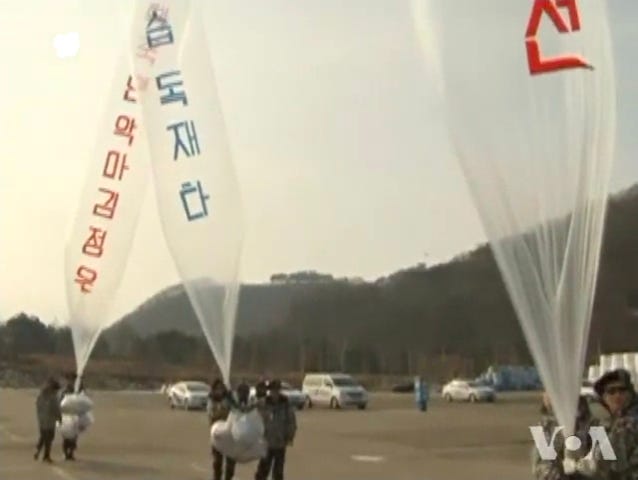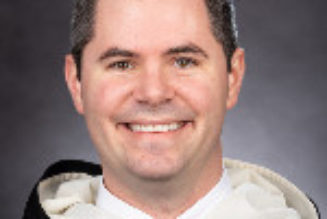Hey everybody,
Today is Tuesday of the Fifth Week of Easter, and you’re reading The Tuesday Pillar Post.
The news
The World Health Organization declared on Friday that Covid-19 is no longer a “global health emergency” — a move which has legal and policy effects in jurisdictions around the world.
For most people, Covid, has been “over” for a while now. But while even the WHO can say officially that the Covid emergency is over, everyone knows that we’ll feel for decades the economic, cultural, social, and even spiritual effects of our very strange past few years.
Covid, and our cultural and political responses, changed a lot, and laid bare, I think, how profoundly each one of us needs God.
Anyway, forgive the digression.
When Covid kicked off three years ago, diocesan and parish schools moved to adapt fast to the new conditions under which they were expected to teach — and that meant adopting a lot of new technologies pretty quickly. Some of them were well-vetted, some of them weren’t. And now diocesan superintendents and pastors need to unpack those decisions, and decide what technologies actually belong in Catholic schools.
The library, called Epic Books, offers classrooms more than 40,000 titles for use on school tablets through licensing agreements with publishers. Teachers can assign books through the app, or an amount of reading time, they can filter books according to their own criteria, set reading-level limits for their students, or make available the entire library.
The problem? Well, aside from the serious neurological problem some have raised about reading books on screens, the problem for Catholic schools is that the app contains dozens of titles which parents have judged to be inimical to a Catholic worldview, on crucial issues like Christian anthropology, sexuality, and gender identity.
Here’s what I mean:
For their part, officials in the Archdiocese of Baltimore say the app has been paused at one school, and its broader use in Baltimore Catholic schools is under review.
But while the archdiocese says the problematic books have been recently added to Epic’s library, one parent told The Pillar that she raised content concerns about Epic back in 2020, and a teacher vigorously defended its use.
So how should dioceses and schools engage with technologies that offer convenience, but also raise the prospect of serious formation issues for Catholic schools?
But the real question, it seems to me, is whether parents in other dioceses will raise concerns about Epic – given its content – and how those dioceses will respond. We’ll keep our eyes on that, and, in the comments below, I’d love to hear from parents and educators in other parts of the country.
Read The Pillar’s serious reporting on this “epic” issue, right here.
—
Emeka Ani is chairman of Germany’s Federal Pastoral Council for Catholics with Other Mother Tongues and Rites (BPR), which represents the growing number of Catholics in the country whose mother tongue is not German.
He is also a member of the steering committee of the lay Central Committee of German Catholics, the organization helping to helm the German synodal path.
In those roles, Ani has had a front row seat to the “synodal path” in Germany, and has watched both the politics and theology unfold in real time.
We talked last week with Dr. Ani about his view of what’s unfolding in Germany, and what’s to come.
While Ani assessed a lot about the problems of the Church in Germany — and his take is worth reading — I appreciated most his views on the future. Here’s an excerpt:
Part of the hope of Catholicism in Germany lies with the Catholics with other mother tongues. They are the voice from the center that is so often missing in current discussions and positioning.
The “us-versus-them”/“them-versus-us” attitude as a mode of behavior between lay structures and the Church structure is flawed, ineffective, and unchristian. Clergy and laity must act together as God’s people in the pilgrimage to God, led by the Holy Spirit.
At the beginning of the German synodal way, many voices presented it as the last chance for the Church in Germany. Such voices were wrong, fortunately, because they obviously do not take Christ’s verdict into account in the development of His Church. The last chance for the Church is not determined by us or by the synodal way in Germany. The decision rests with Jesus Christ, who founded the Church and is always with it.
…
The universal Church is represented in Germany by Catholics with other mother tongues. The vitality in the life of faith and in practice in the communities of Catholics with other mother tongues, including youth work, could be a point of reference for the Church in Germany.
We need a rethink, a reorientation, and more togetherness in Christ. Above all, a new culture of dialogue must be practiced in our public discussions about the Church of Christ, to which we are privileged to belong. This ensures participation and inclusion.
—
After the Pontifical Commission for the Protection of Minors has faced a tough couple of months — both internally and in the public eye — Pope Francis on Friday told the embattled group that “now is the time to repair the damage done to previous generations.”
The pope called for a “spirituality of reparation” to deal with clerical sexual abuse and episcopal cover-up or misconduct around the world. That call struck The Pillar’s Ed. Condon as a rather different rhetorical style than that of the bishops who have managed to apologize for abuse, or call for reform, without actually identifying responsible parties or expressing personal responsibility themselves
Ed noted the language of the Archdiocese of Baltimore amid a grave set of reports about the history of that diocese, including a Baltimore Sun investigation last week which found Bishop William Malooly, recently the emeritus of Wilmington, seemingly complicit in actions that might reasonably be called a cover-up.
Episcopal-speak in these circumstances, Ed noted, can all become a kind of apology-in-abstraction, in which empathetically-intoned regret is the order of the day, without substantial or personal engagement with the past.
You should read Ed’s analysis here, it’s very insightful.
Although I must say that I was struck very differently by the pope’s call for a spirituality of reparation, in the context of an admonition “now is the time” for the PCPM and the Church to “repair the damage.”
First, I think the pope’s view that problems have done harm “to previous generations” misses the reality of the Church’s current reckoning, in which abuse of adults and related misconduct is being grappled with now, in real time, and doing serious harm, both directly and by scandal, to current generations.
Second, I’m a bit surprised to hear that “now is the time,” given that these issues have been at the fore since 2018, at least.
Of course, the speech might have simply meant as an encouragement that the PCPM would be taken seriously at the Vatican, after high-profile members complained that it is sidelined and toothless. But still, one would rather expect that the past few years have been the time to get working.
But my final note is that while the pope urged on Friday the members of the PCPM to use their “skills and expertise to help repair a terrible scourge in the Church,” there was little discussion of his own papal efforts toward the same end.
The pope, on the one hand, has overseen much good work to address legally the scourge of clerical sexual abuse in the Church. On the other hand, the handling of a growing number of cases extra-procedurally — by a more opaque set of rules and practices — has left a swath of legal reformers, and victims, somewhat frustrated.
The pope’s exhortations to the PCPM will only be effective for ongoing reform if the papal office holds itself accountable to just, equitable, and consistent application of the reforms enacted and put in place.
At the moment, that’s the issue that’s getting the most criticism from observers. So if Ed is right, and personal responsibility is lacking in the language of diocesan bishops, one wonders whether the pontiff might choose to become a model on that front.
—
Finally, we’ve been publishing over the last few months a series on how parishes implement practical and concrete solutions to pastoral, catechetical, or administrative challenges.
What I appreciate most about their effort is that the households aim to include parishioners of all generations and states in life — they’re not merely a ministry for families, or young adults, or teens. That strikes me as a particularly important part of fostering parish life, since a crucial part of Christian community is to see to it that people in need are surrounded with those who can help them.
But committing to inviting parishioners beyond the usual suspects takes work, the parish has found.
“Jesus said, ‘Don’t invite your friends. When you have dinner, invite the poor.’ We want to make sure that we’re inviting the people that Jesus told us we’re supposed to invite to this,” one organizer said.
“I think we’ve maybe gone too far with [specific programming] — so many things like, ‘these are the things for young adults,’ and ‘these are the things for families with kids,’ and ‘these are the things for our older parishioners,’” he added.
“We need more opportunities to come together.”
—
And briefly, a development in the Diocese of Knoxville, Tennessee, not broken by The Pillar, but worth knowing.
The Knoxville News-Sentinel reported this morning that in April 2021 — the same month The Pillar first reported the Bishop Rick Stika had interfered with an investigation into sexual abuse allegations against a seminarian — Bishop Stika notified St. Louis University that the Diocese of Knoxville would pay some $48,258 to cover the ousted seminarian’s tuition for the 2021-2022 academic year.
A quick timeline:
-
In February 2021, the diocesan seminarian was dismissed from St. Meinrad’s Seminary, after he was accused of multiple counts of sexually aggressive behavior toward fellow seminarians. Stika kept him on as a seminarian of the diocese, though he was not in studies, and the seminarian moved into Stika’s house.
-
In March 2021, after a meeting of the diocesan review board, a private investigator began looking into claims that this same seminarian had sexually assaulted a parish organist. Stika fired that investigator, and told The Pillar that he “know[s] in my heart” that the seminarian was innocent.
-
In April 2021, priests of the diocese made Vos estis lux mundi complaints about Stika’s leadership, including his alleged cover-up of the sexual assault.
-
Also in April 2021, the Knox News-Sentinel reports, Stika told St. Louis University that the diocese would cover the former seminarian’s tuition. My sources tell me that Stika also arranged housing for the young man, and — as recently as this year — tried to find diocesan benefactors to buy the young man a car.
An apostolic visitation in Knoxville took place six months ago. The Holy See has issued no comment on its findings.
—
Balloon news
As astute readers of The Pillar know, I’ve made it a personal project in recent months to track the latest on the role of balloons in international affairs, both military and humanitarian. There are two bits of balloon news this week worth noting.
First, a U.S. company is testing this week a set of stratospheric balloons which can travel at 70,000 feet for up to five months, and, by adjusting their altitudes to catch different currents, follow specific directions from flight directors on the ground.
We’ve already got a fair number of stratospheric spy balloons in our arsenal, some of which go much higher, but these new balloons represent new achievements in the combination of height and maneuverability. 70,000 feet is some 13 miles above the earth, and a little bit higher than the cruising altitude of the Chinese balloon we shot down off South Carolina back in February.
To paraphrase a great film, we must not allow a balloon height gap!
The good news is that the federal government promises that our 13-mile remote controlled supertech spy balloons never collect intelligence on citizens. Sure. They definitely don’t.
—
Next, a group of activists in South Korea launched last week some 20 balloons in the direction of Pyongyang, carrying as cargo vitamin C, Tylenol, and literature denouncing the regime in North Korea.

This humanitarian balloon thing has happened before, and it’s quite controversial in South Korea, despite the obvious need for humanitarian assistance under the despotic regime in North Korea.
In 2018, during talks between the Koreas, South Korea’s president promised as a sign of good faith to stop the float of balloon-borne propaganda across the DMZ into North Korea.
In fact, South Korea ban against launching such balloons means that if you let go of a northbound balloon in sight of a cop, you could face three years in prison.
But Fighters for a Free North Korea, which says it has launched more than one million balloons since 2004, periodically violates that law, practically daring the South Korean government to take the air out of their plans.
In October last year, police confiscated some balloons from the group, but did not press charges.
Fighters for a Free North Korea say the ban is a lot of hot air, but the static between North and South Korea over the issue is getting more intense.
We’ll hold onto this string, and keep you updated.
—
Last, as ever, we’re grateful for subscribers, and most grateful if you choose to become one:
We’d also appreciate if you’d share The Pillar Post with discerning Catholic readers of good taste and judgment, like yourself:
And, if you’re among the many readers who have asked when they’ll see the next season of Sunday School, The Pillar’s Bible study podcast, you’re in luck.
The first episode of our Psalms Season dropped on Saturday. You can listen here, or wherever you get your podcasts.
Please be assured of our prayers, and please pray for us. We need it.
In Christ,
JD Flynn
editor-in-chief
The Pillar
Comments 9
Services Marketplace – Listings, Bookings & Reviews













